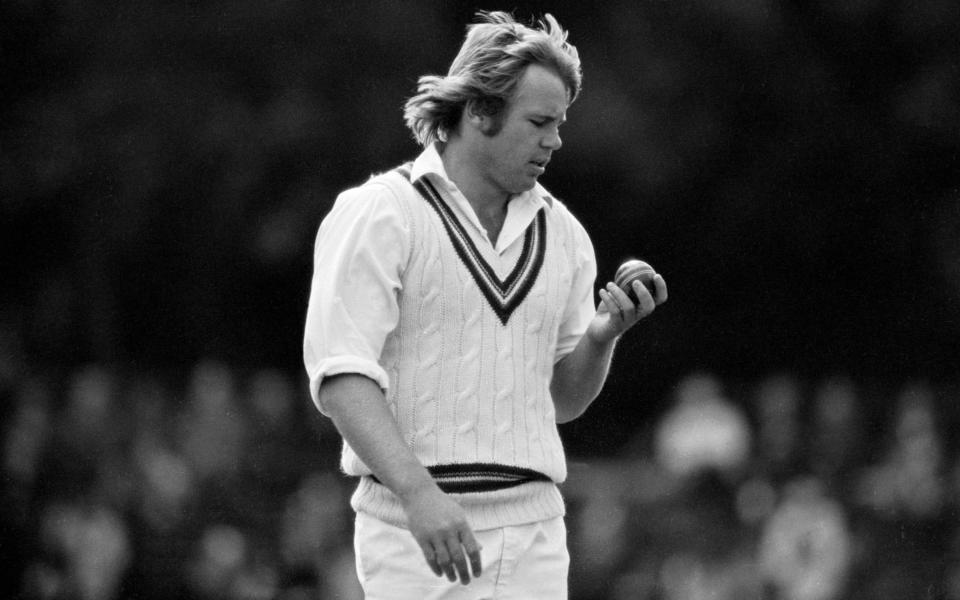
Mike Procter’s death is not only sad in itself – he was second only to Sir Garfield Sobers as a complete allrounder – but a reminder of the glory days of county cricket.
This period, of the 1970s and 1980s, was the last time that cricket was the game of the people in England and Wales, before it became the preserve of those affluent enough to buy tickets to watch or the expensive equipment to play.
The two county limited-overs competitions – the 55-over Benson and Hedges Cup, and the 60-over Gillette Cup – were the big days out. Their knock-out matches were what football supporters went to see in the summer months. The atmosphere was more charged than it was for England Tests in front of half-full crowds unless Ian Botham was having a field day against Australia.
Instant registration in 1968 opened the door to Procter, Sobers and all the great players around the world who wanted to fill their off-season (amateur and therefore unpaid) with county cricket. So they came, and they stayed, at their one chosen county – not like now when overseas cricketers have signed for five or even six counties.
Procter’s spell of four wickets in five balls at Southampton’s old ground, in the B&H semi-final of 1977, can still give us a flavour of the excitement. The BBC would not dare interrupt its coverage of a county knock-out game for anything so frivolous as the Nine O’Clock News.
“HE’S DONE IT! The hat-trick for Procter, four in five balls. What a performance, the crowd again has gone mad.”
A memory that has been passed down through generations 💫
Share your favourite memories of watching Mike Procter play as we remember the remarkable player he was ⬇️ pic.twitter.com/QWQROcpQuh
— Gloucestershire Cricket (@Gloscricket) February 18, 2024
It was genuine excitement, spontaneous, from players and crowds alike. Nothing like the forced bonhomie and orchestrated singing of T20 Finals Day at Edgbaston. County supporters made up their own songs – they did not mindlessly chant Sweet Caroline.
Procter embodied Gloucestershire just as Clive Lloyd embodied Lancashire, and Viv Richards Somerset, and Sobers Nottinghamshire more briefly. They opened up glamorous new worlds to English spectators and to old county pros who had hitherto been content with nudging the ball off the back foot for 2.3 runs per over.
No Test bowler, excepting ancients before the Great War, has matched Procter’s Test average of 15 if the qualification is 40 Test wickets. He was restricted by apartheid to seven Tests, when the pace he generated from an open-chested action and his inswing blew Australians away.
And what followed, when the ban was imposed, was no less impressive. He could have been bitter, as some of his South African contemporaries were, but he wasn’t. He threw himself into county cricket, and enjoyed the rest of his career, and a couple of drinks at the end of a day, and he enabled others to enjoy life – most notably when he put his money into a village outside his native Durban to fund its very basics.
In South African domestic cricket Procter scored six centuries in consecutive first-class innings. Sobers bowled everything, but Procter, even if he could not bowl wrist-spin, bowled highly presentable off-breaks in addition to speed like the wind. And he was a far better captain than Sobers ever was.
Only last year Gloucestershire staged a dinner to mark the 50th anniversary of their Gillette Cup victory at Lord’s. They slipped to 27 for three wickets – including their fine Pakistan Test batsmen Sadiq Mohammad and Zaheer Abbas – before Procter rescued them with 94.
So galvanising was Procter’s impact that going into the last round of championship matches in 1977 Gloucestershire stood on the verge of the unprecedented. They had been the premier county in the 1870s under WG Grace but nobody seems to count those titles, and a hundred years passed without another. But now, if they beat Hampshire at Bristol, the title was finally theirs.
Procter was heroic. After his team had collapsed to 28 for four on a damp pitch he made 115. When Hampshire batted he bowled 39 overs of pace and off-spin to take six for 68, then added another half-century. Nevil Road had standing room only on the last afternoon: yes, a championship match packed to the gunwales. Hampshire needed 271. Procter bowled his heart out, yet again, but the gods and Gordon Greenidge were unmoved, a couple of catches went down, and the spectators faded away, some never to return.
Article courtesy of
Source link